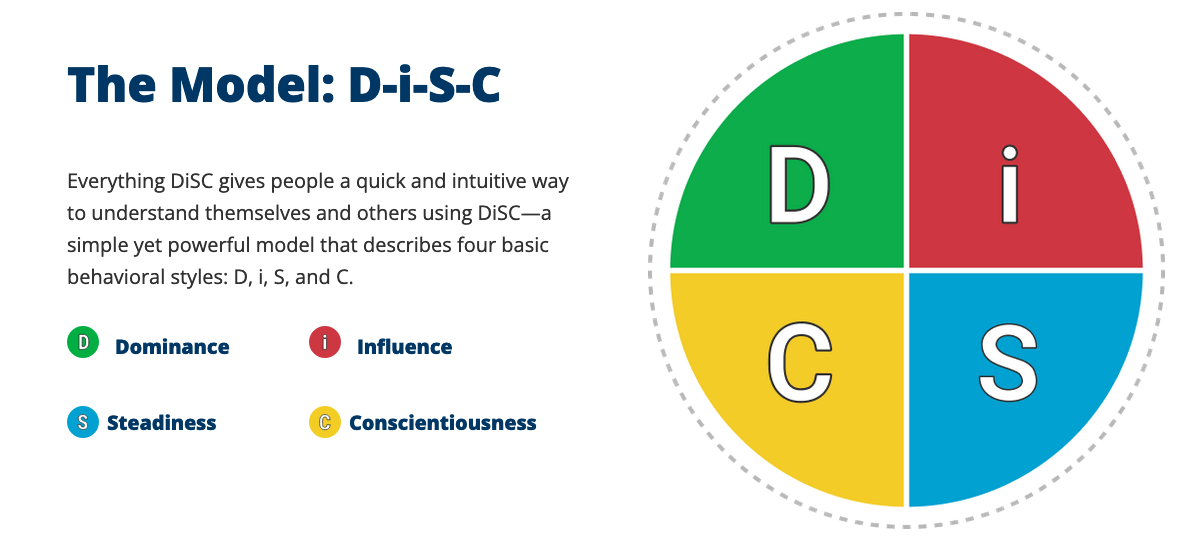The Myers-Briggs Type Indicator (MBTI) is a popular, question based personality test. It described 16 personality types based on a a range of factors. This are an individual’s internal / external focus, how they make decisions, how they take in information and how they live their outer life.
Summary by The World of Work Project
Myers-Briggs Type Indicator
The Myers-Briggs Type Indicator (MBTI) is one of the most popular personality tests in the world. It’s based on the Carl Jung’s work. Katherine Briggs and her daughter, Isobel Myers, expanded on Jung’s work and created the MBTI as we know it today. The model uses a series of questions to categorize people into one of 16 different personality types. These 16 personality types are based on four distinct dichotomies.
The MBTI is also a bit of a contentious issue for some people, so apologies in advance if what we’re written doesn’t align to your view. We hold our thoughts and opinions in this space lightly.
The Myers-Briggs Dichotomies
The Myers Briggs Type Indicator Personality model uses four distinct dichotomies. These are paired in such a way as to create a total of 16 potential personality types. All this means is that people who take the test basically need to determine between four pairs of options relating to some fundamental personality characteristics. These are below.

The 16 Personality types of the MBTI
The 16 personality types used in the Myers Briggs Type Indicator Personality Tests are referred to by letters. These letters each relate to the dichotomies that they correspond to. For example an Extroverted, Sensing, Thinking, Judging personality type is known as an ESTJ.
There are many different definitions of what these personality types reflect available on the internet. That said, the best way to learn about the test is to actually take it. To do this, it’s best to find a registered MBTI practitioner and complete the assessment with them.
In some summaries of the MBTI, the different personality types are also given a name. These names seek to capture the spirit of their description. We’ve created a set of these below to give you a sense of what each personality type means in the MBTI framework.




Though there are many simple self-tests that you can complete online to learn about your Myers Briggs Type Indicator Personality Tests personality, the best way to get a real view is to complete an official MBTI assessment with an approved provider.
Learning More
We’re very conscious that we are not experts in this area at all. We have, though, briefly covered a range of personalty tests in our website. These include Discovery Insights, Merrill-Reid, Birkman and the Big Five, as well as some other things like Type A and Type B personalities. Please consider our posts on these topics just a starting point from which to further your reading and understanding.
Personality tests also give people the sense that they are truly understood by others. Feeling understood is a powerful emotion that makes people feel validated and seen by the world. This is rewarding and people really value it. The tests can also be fun.
As a starting point to explore models like this, we recommend looking at The Open Source Psychometrics Project.
Personality tests can help people improve their self awareness. This is one of the reasons people do them.
You can listen to our old post on personality below, caveats from above apply:
The World of Work Project View
Myers Briggs Type Indicator Personality Tests tests are very popular. There is a huge business behind running. They are at the same time excellent, and potentially flawed.
In many ways, MBTI tests are a symptom of our obsession with simplicity. We see this desire for ever simpler things everywhere. Personality tests are an effort to simplify one of the most complicated things in our existence, the behaviors of people. In reality, the world is really complicated and so are people. It’s absolutely not possible to just categorize people into groups and wash our hands of their innate complexities.
MBTI is difficult to validate scientifically and many personality tests have been shown to actually barely predict personality. In addition, results can also be easily faked. So clearly they can be seen as flawed and adding little value.
However, it’s not quite that simple.
While some have little scientific basis, they can be helpful tools. They can help people explore personalities, develop self-awareness and develop a deeper understanding of those they work with. People often find detailed summaries of their MBTI reports moving and highly personal. There are many true believers of these tests. These people feel that their MBTI results have changed their lives by helping them feel understood and feel a sense of belonging. So clearly the can be very helpful tools for individuals and teams.
Our summary view of these tests is that the problem with them isn’t in the tests themselves, which are fun and informative, it’s that people may look to place reliance on them when they really shouldn’t. While personality can affect job performance, its effect is often no more powerful than other factors such as economic background, social status or traditional intelligence. It’s wrong, or at least unproven, to use these tests to decide the outcomes of individuals in things like job applications, career assessments, child-custody, or prisoner placement (all of which have reportedly happened).
We’re all looking for shortcuts for decisions in the world of work which is understandable. Whatever their other, clear benefits, tests like the Myers Briggs Type Indicator Personality Tests shouldn’t be one of these shortcuts. However, we have no doubt many people will continue to use them as such.
How We Help Organizations
We provide leadership development programmes and consulting services to clients around the world to help them become high performing organizations that are great places to work. We receive great feedback, build meaningful and lasting relationships and provide reduced cost services where price is a barrier.
Learning more about who we are and what we do it easy: To hear from us, please join our mailing list. To ask about how we can help you or your organization, please contact us. To explore topics we care about, listen to our podcast. To attend a free seminar, please check out our eventbrite page.
We’re also considering creating a community for people interested in improving the world of work. If you’d like to be part of it, please contact us.
Sources and Feedback
This post has been informed primarily by our experiences over our careers and the various tests that we’ve undertaken. It’s also been influenced by general reading on the MBTI and personality tests in general.
We’re a small organization who know we make mistakes and want to improve them. Please contact us with any feedback you have on this post. We’ll usually reply within 72 hours.






